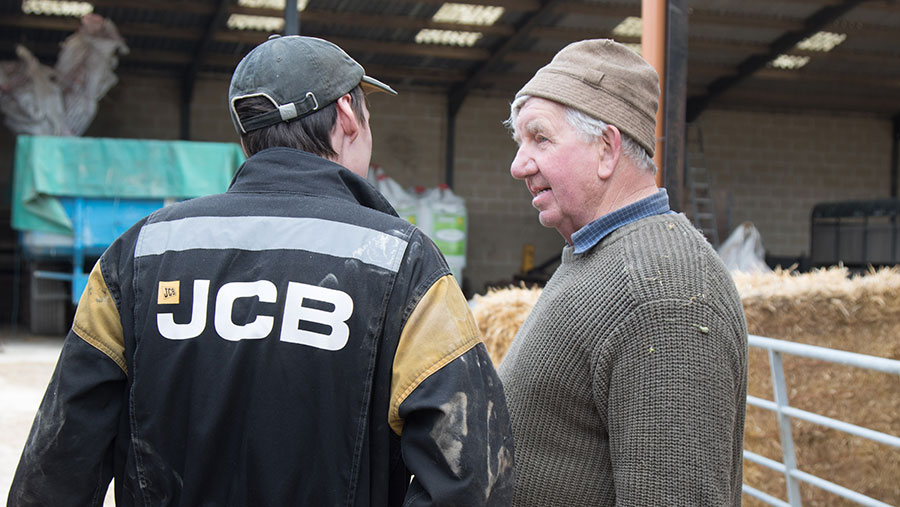Industry demands flexibility for farmers who want to retire
 © Tim Scrivener
© Tim Scrivener A flexible approach from Defra will be essential to allow older farmers to retire and encourage fresh blood to enter the industry, the NFU has said.
The union has delivered its response to the government’s lump-sum exit scheme consultation for England, which closed on Wednesday 11 August.
The NFU says 2,500 of its members responded to its own consultation seeking views on the proposals.
See also: Will Defra’s exit scheme appeal to farmers?
It confirmed that every farmer is unique and their personal personal circumstances, land tenure and enterprises vary massively, which is why a one-size-fits-all approach would be unacceptable.
NFU vice-president Tom Bradshaw said: “It’s clear that many members are concerned about the loss of a family home, so we would urge a flexible approach to this, allowing those exiting the industry to keep their residential property or any non-farming-related business.
“A flexible approach would reduce barriers for those wishing to exit the industry and still have the potential for income from non-farming activities.”
Giving notice
Tenant farmers face added complications to meet with the legal requirements of giving notice to their landlords, Mr Bradshaw noted.
The NFU said new entrants would need as much support as those exiting the industry, and emerging agricultural policies “must work hand-in-hand” and provide a base for all aspects of successful farming businesses.
In its own response, UK food and farming alliance Sustain said questions remain about whether the scheme would provide opportunities for new entrants.
“We are keen to see Defra help create opportunities for new entrants who want to farm sustainably and be part of a thriving rural community,” said James Woodward, sustainable farming officer at Sustain.
“However, without a clear mechanism or policy objective, the lump-sum exit scheme is unlikely to be a genuine opportunity for new entrants.”
Mr Woodward said large investment firms were already snapping up farms and land for mass tree planting schemes, so asking new entrants to compete against groups with that level of financial backing would be a “tall order”.
The Tenant Farmers Association (TFA) said there had been a great deal of interest from its members in the potential for lump-sum payments.
The TFA carried out a survey of 360 of its members in February which found three-quarters were seriously interested in the proposed retirement scheme.
But how likely they would be to take it up would depend on the overall value, the way in which payments would be taxed and the availability of housing solutions.
In its response, the TFA said it had lobbied for many years for the availability of a retirement payment for older farmers.
‘Missed opportunities’ – TFA
But it warned of missed opportunities in the proposed exit scheme, including no scope to make lump-sum exit payments available to someone continuing in agriculture to invest into their farm business – subject to surrendering all Basic Payment Scheme (BPS) entitlements held by the farm business.
The lump-sum exit scheme will launch in 2022 as part of the transition to a new agricultural policy in England. It will only be open to farmers who claim basic payments and are willing to give up their land.
Farmers who wish to retire or leave farming could receive a lump sum payment of £50,000, capped at £100,000 for farmers with the most land, in lieu of any further direct payments.
The consultation proposes that remaining basic payments would be delinked from the land from 2024 and progressive reductions in payments would be applied over a reference period for the remaining years of the agricultural transition to 2027.
